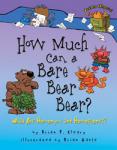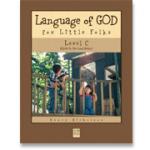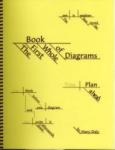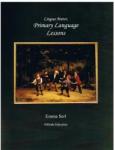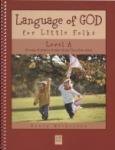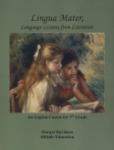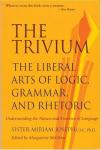Grammar
Language of God for Little Folks (Level C)
Language of GOD for Little Folks - Level C, is Catholic Heritage Curricula’s grammar program designed for the third or fourth grader. It is a complete program in a spiral bound workbook and does not require any additional text or teacher’s manual. The program focuses on gradually building language skills. These skills are very naturally presented within the context of the Catholic faith. Topics covered are sentence parts, nouns, verbs, adverbs, adjectives, pronouns, commas, apostrophes, tense, and subject- verb agreement.
The First Whole Book of Diagrams
I was not taught to diagram sentences as part of my education, so I first viewed such diagrams as a curiosity; however, I have gradually come to appreciate their value as a tool for helping my children understand how the works and ideas in a sentence are related. I have, for example, diagrammed Latin sentences for them to help them understand the structure and grammar of that language.
Language of God for Little Folks (Level A)
This is a simple and charming, Catholic grammar workbook designed for use in the second grade. It reinforces very basic grammar concepts such as - what constitutes a sentence, nouns and verbs, past and present tense (choosing the correct verb), singular and plural, opposites, simple synonyms, and capitalizing words such as - the days of the week, the months of the year, special titles and the names of God.
First Language Lessons for the Well-Trained Mind
Intended for use in first and second grades, the 200 completely-scripted lessons in this textbook are a complete guide in "How to Teach English to Young Children". The non-consumable book is actually a textbook for the teacher rather than the student. Lessons are completely secular and include portions of classic poems, stories and rhymes. Also included are original poems and stories as well as a few selections that have been adapted for young children. Pictures are black-and-white line drawings rather than photographs or color reproductions.
The Trivium: the Liberal Arts of Logic, Grammar, and Rhetoric
This little gem was used as a freshman college course after the author met philosopher Mortimer Adler and understood the importance of teaching basic language skills as the foundation of other learning. After some years of study, she put together this course in the Trivium, the three language arts – of word relations (grammar), concept relations (logic), and composition (rhetoric). The result is a primer in Aristotle's Categories, a demanding course in logic, and a prerequisite to good composition.

